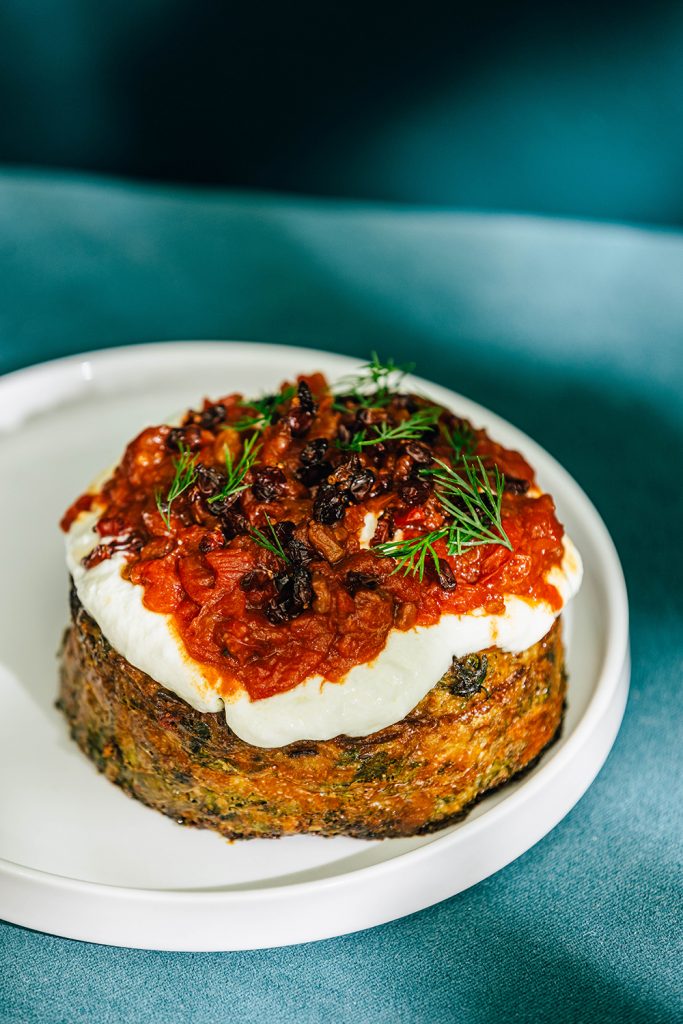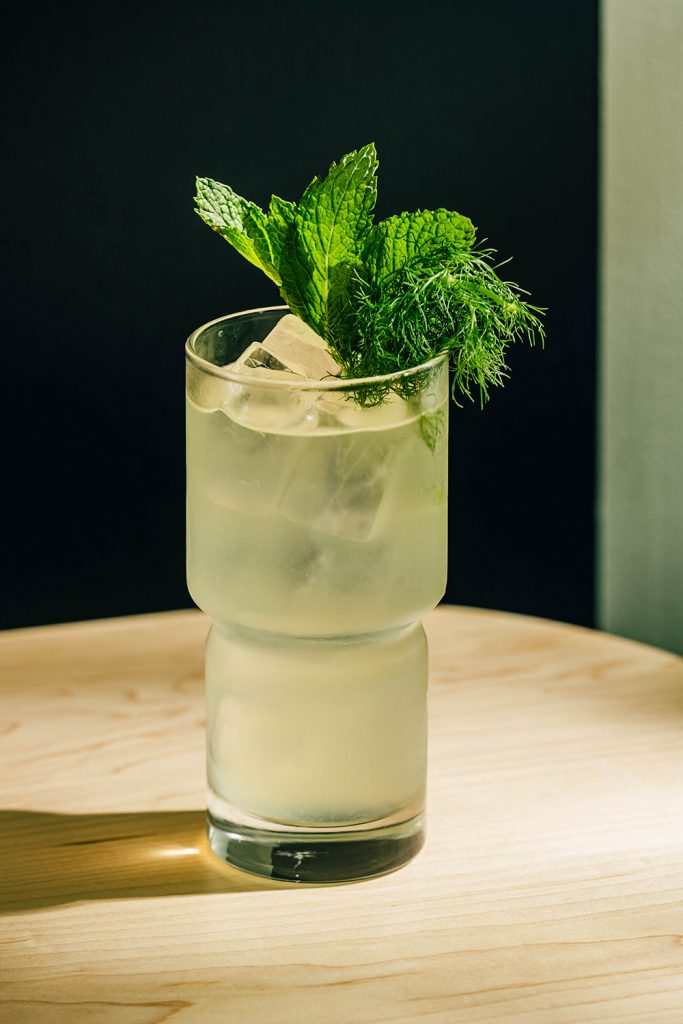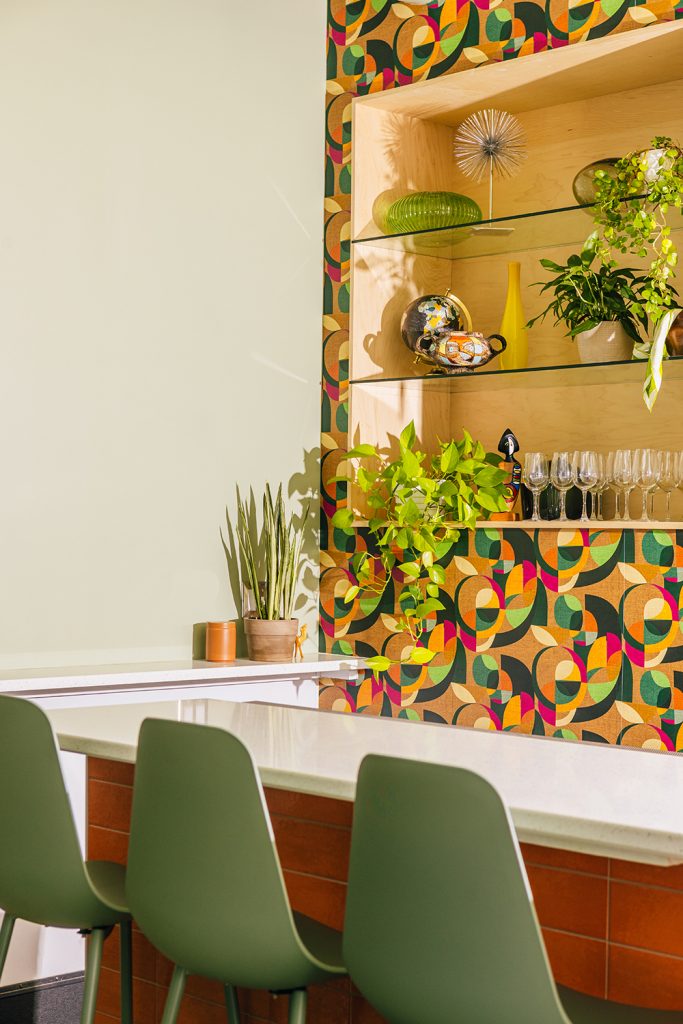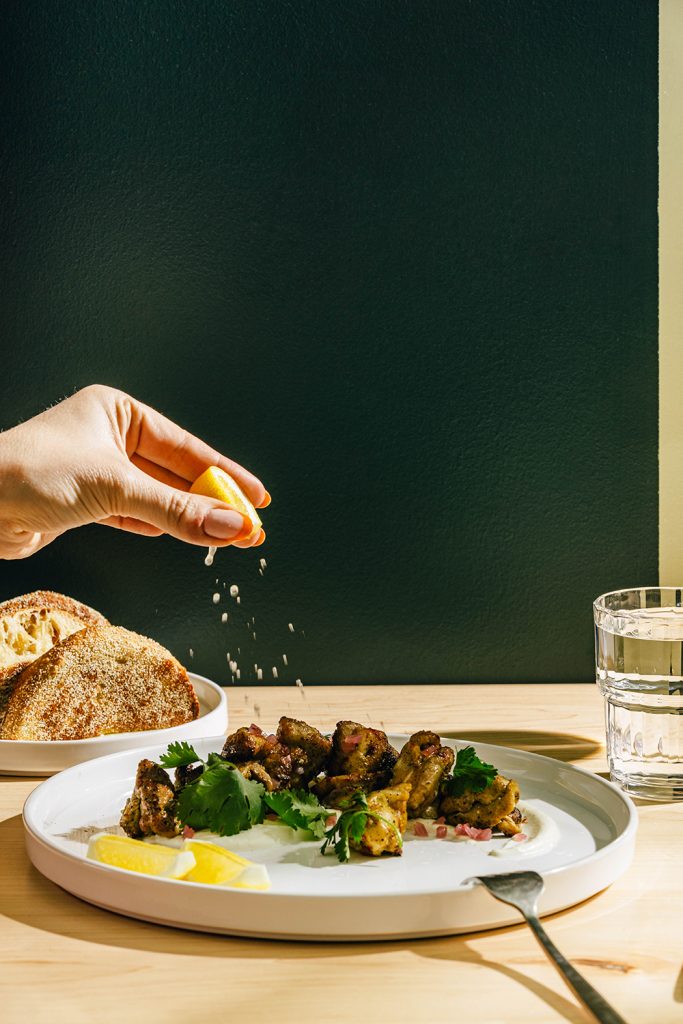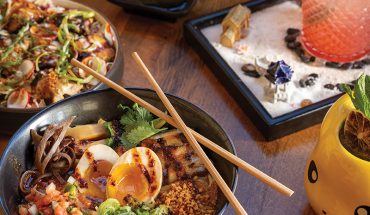This airy restaurant on Bickett Boulevard offers thoughtful Mediterranean-inspired food in a bright and friendly atmosphere.
By Ayn-Monique Klahre | photographs by Baxter Miller
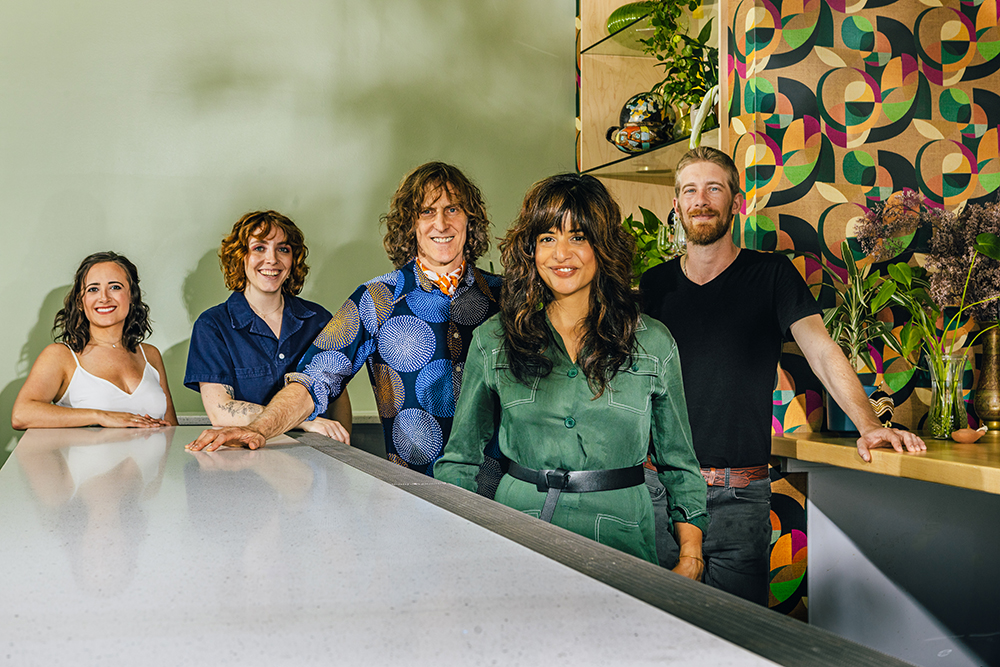
This weekend, Cheetie Kumar will open the restaurant Ajja along with her partner Paul Siler, general manager Gaëlle Laforest, beverage manager Lindsay Ogden and chef Chris Gamble. It’s a much-anticipated new venture for Kumar, who helped put the Raleigh food scene on the map — and earned multiple James Beard Award nominations — with her former restaurant, Garland.
At Ajja, the menu is infused with flavors from the Mediterranean and Middle East, offering a veggie-forward menu with a shareable mix of seasonal dips, small plates and grilled items. “It’s all light and bright and healthy,” she says. “We pulled from many traditions, but we’re thinking about cooking with olive oil, and about the parts of the world that share that style of flavor.”
Take the Kuku Sabzi, one of Kumar’s favorite new dishes. It’s sort of a frittata, a stack of herbs “just set” with eggs, topped with labneh and a sweet tomato chutney. “It ties together Spain and India with the use of kasuri methi, or dried fenugreek, which gives it a deeper umami flavor,” she says. “I love the story it tells, and it goes with everything — it’s day friendly, it’s night friendly, it’s not temperature-finicky and it’s good as a leftover. It’s simple but complex.”
Items off the grill serve as the “humble little anchor” for the menu. Kumar and Gamble worked hard on the marinades to make familiar items like chicken kebabs and lamb seekh delicious but simple for the team to prepare. Some of that is guided by having a smaller space than she did at Garland. “The kitchen is small, we don’t have much storage, so we need to be smart about having quick cooking dishes if, say, we have an afternoon event that gets crowded,” Kumar says. She notes that the dips and spreads are meant to be eaten at any point during the meal. “You should always have a lot of things on your table, and everything kind of goes together,” she says. “If you start with a dip, and have some left over when your grilled items come, then you’ll smear them all together on a piece of bread.”
On a deeper level, Kumar feels that these flavors connect her to heritage: her mom’s side of the family was in Pakistan, and Kumar’s grandparents were killed during the Partition of 1947. “We have no way of connecting to that side of our family history, so this is my way to do it,” she says. (Kumar cites legendary cookbook author Claudia Roden for first articulating this concept for her. Roden is an Egyptian-born woman of Syrian Jewish descent whose family was displaced during the Suez Canal crisis of the 1950s; Roden’s first cookbook was born from a desire to capture the culinary practices of Middle Eastern refugees like herself.)
Kumar credits Ogden for perfecting the beverage menu at Ajja. “Lindsay’s just brilliant with her flavor profiles and ingredients,” says Kumar. “The first time I tasted the raspberry drink — it’s called Once More, With Feeling — I literally got tears in my eyes because it tasted so much like old Delhi with the rose and cardamom.” The cocktails include unusual, often house-invented ingredients, including za’atar, fennel, and a toasted sesame orgeat. (We had to look it up, too: an orgeat is, apparently, an almond-based syrup traditionally used in tropical drinks.) There’s also a strong spirit-free menu. “All of the drinks are innovative and fun, this is a great space to enjoy a beverage, alcoholic or not,” says Kumar.
Along with Laforest, Ogden also developed a wine list that highlights producers from less-familiar parts of the world, like Croatia and Slovenia. “The wine tradition is not exclusive to Europe and the Americas — anyplace with olives has grapes, so we went to these regions where old is new again,” Kumar says.
Work on the new restaurant on Bickett Boulevard started back in 2021, and was slowed by pandemic-related delays and cost increases. Part of what fueled the final design scheme — a palette of oranges and greens, with open-air spaces infused with hanging lanterns and plants — was the building itself. “When a space feels a certain way, you just go with it,” says Kumar. “It’s light and bright, it’s cute and casual — it’s inviting.” The restaurant has a broad covered patio with outdoor seating, a smaller indoor seating area, and a lawn with a big fire pit (and excellent view of the city skyline) with room to host future events like live music or karaoke. “It’s intended to be an inviting space where people feel taken care of,” says Kumar.
Above all, Ajja is meant to be friendly but thoughtful, celebratory but approachable. “I feel like Ajja is an honest reflection of this time and place,” says Kumar. “Eating here should be a transformative experience — but we also want to feel like a place that serves the neighborhood, where you can just walk on down and have dinner.”
This article was originally published on waltermagazine.com on June 21, 2023.

